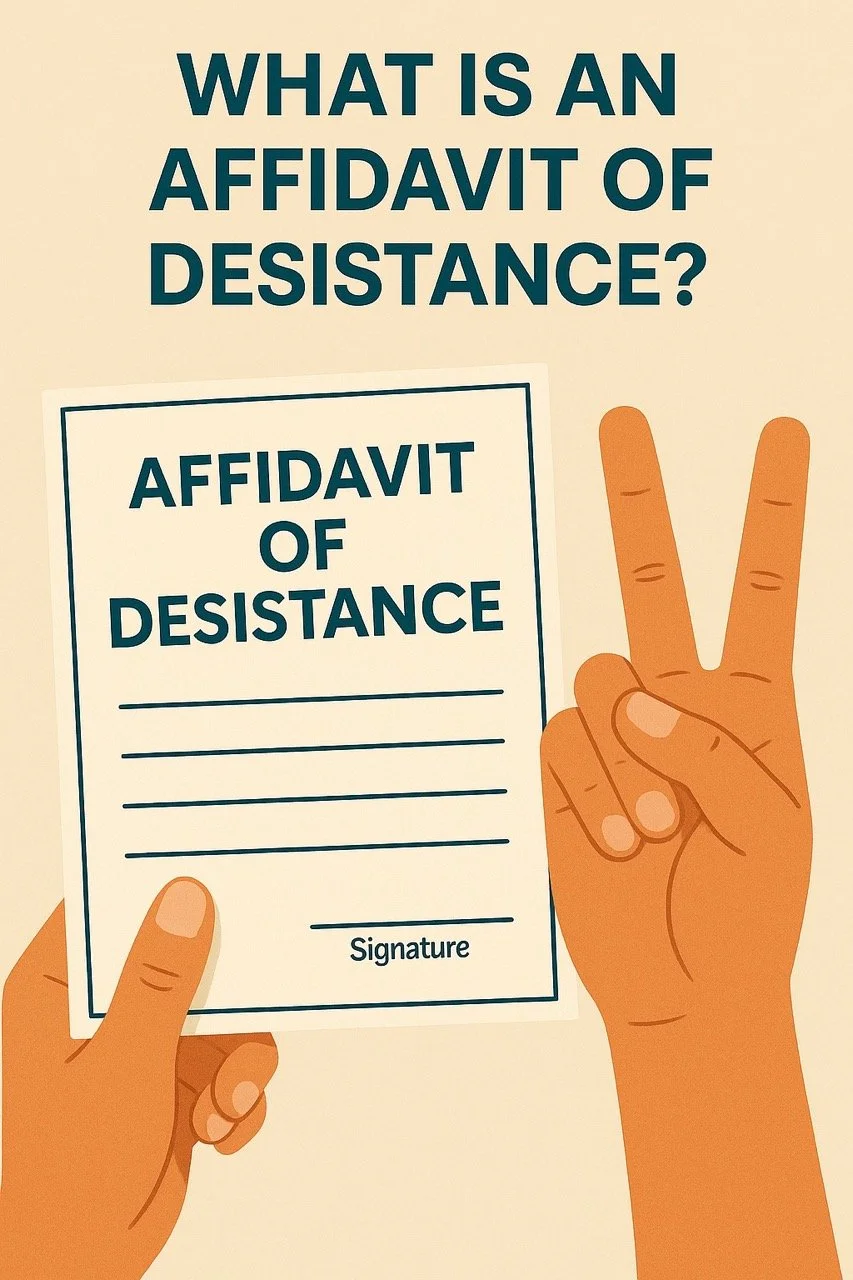What is an Affidavit of Desistance?
Affidavit of Desistance—a term often encountered in Philippine legal proceedings—can play a significant role in both criminal and administrative cases. Whether you're a complainant reconsidering your stance or an accused seeking clarity, it's essential to understand what this document truly means and how the courts interpret it.
Defining the Affidavit of Desistance
At its core, an Affidavit of Desistance is a formal, sworn statement made by the complainant in a criminal or administrative case. In this document, the complainant declares their intention to discontinue or disavow the action they previously initiated. They may state their reasons for this change of heart in the affidavit. Essentially, it's a way for the complainant to express that they are no longer interested in pursuing the case.
This definition is well-established in jurisprudence. For instance, one case defines it precisely as "a sworn statement, executed by a complainant in a criminal or administrative case, that he or she is discontinuing or disavowing the action filed upon his or her complaint for whatever reason he or she may cite."
How Courts View an Affidavit of Desistance
While a complainant's decision to withdraw their complaint might seem straightforward, an Affidavit of Desistance does not automatically lead to the case being dismissed. Philippine courts generally view these affidavits with suspicion and reservation.
The reason for this cautious stance is rooted in the nature of prosecution, particularly criminal cases. The State has the sovereign right to prosecute criminal offenses, and this right is under the full control of the fiscal (prosecutor). Courts do not look favorably upon the dismissal of criminal cases simply because the complainant has executed an affidavit of desistance.
Jurisprudence reveals that courts attach little persuasive value to an Affidavit of Desistance, especially when it appears to be an "afterthought" – meaning it was executed after the case had already progressed significantly or after the accused had been convicted.
Courts are wary that such affidavits can be easily obtained from witnesses, particularly those who are poor or lack education, often through intimidation or for monetary considerations. It is considered quite incredible that a victim, after going through the difficult process of reporting a crime, cooperating with law enforcement, and testifying, would suddenly declare that the accused's actions do not warrant prosecution.
The Legal Effect: Not a Guaranteed Dismissal
An Affidavit of Desistance is generally considered merely an additional ground that may buttress the accused's defenses. It is not the sole consideration that can result in an acquittal or dismissal of the case.
For example, in numerous rape cases, despite the victim executing an affidavit of desistance, courts have upheld convictions based on the victim's clear and consistent testimony and corroborating evidence, ruling that the affidavit had no persuasive value. Similarly, in cases of bigamy, estafa, falsification, and illegal recruitment, affidavits of desistance executed after the case began or after conviction were largely disregarded.
When an Affidavit of Desistance May Matter
Despite the general rule, there are special and exceptional circumstances where an Affidavit of Desistance may be given weight. It may be considered if coupled with other evidence that raises doubt about the accused's guilt.
Specifically, if the affidavit involves an express repudiation of the material points alleged in the original complaint, and there is no showing that it was executed fraudulently or under duress, it may be admitted and considered as evidence. Such a repudiation can significantly question the probative value of the initial complaint-affidavit. In such instances, the affidavit of desistance, particularly if it corroborates the accused's explanation for the charges, may create serious doubts regarding the accused's liability.
For example, in one case, an Affidavit of Desistance coupled with the complainant's testimony during a hearing that she had no transactions with the accused and that the alleged obligation did not exist, contributed to the court finding reasonable doubt and acquitting the accused of Estafa. In some administrative cases referenced in the sources, affidavits of desistance were considered, especially when they contradicted the original allegations and reinforced a finding of lack of substantial evidence.
However, even in administrative proceedings, jurisprudence is replete with cases stating that an Affidavit of Desistance is immaterial. Disbarment proceedings, for instance, are not automatically terminated by a desistance due to their public interest nature. An affidavit of desistance is not sufficient cause to warrant the dismissal of an administrative complaint and is not binding on bodies like the Ombudsman.
Considerations in Execution
An Affidavit of Desistance must be a sworn statement. Issues regarding the authenticity and voluntariness of such affidavits have been raised in court, including allegations of forgery, duress, threats, or lack of understanding of the contents, particularly by victims who are minors or lack legal assistance. Violations related to the notarization of these affidavits have also been subject of administrative cases against lawyers.
Conclusion
In summary, an Affidavit of Desistance is a complainant's sworn statement expressing a desire to withdraw their complaint in a criminal or administrative case. While it signifies the complainant's lack of interest in pursuing the matter further, it does not automatically compel the dismissal of the case. Courts generally view these affidavits with caution and skepticism, assigning them little persuasive weight, particularly if filed late in the proceedings. An Affidavit of Desistance can only be considered as an additional piece of evidence to support the defense, and its impact depends heavily on whether it is coupled with other factors that create reasonable doubt as to the accused's guilt or genuinely repudiates the initial complaint's factual basis without signs of coercion.
Need legal help with drafting an Affidavit of Desistance?
Contact us and set an appointment today. Our team is ready to guide you through every step with clarity, compassion, and legal precision.
